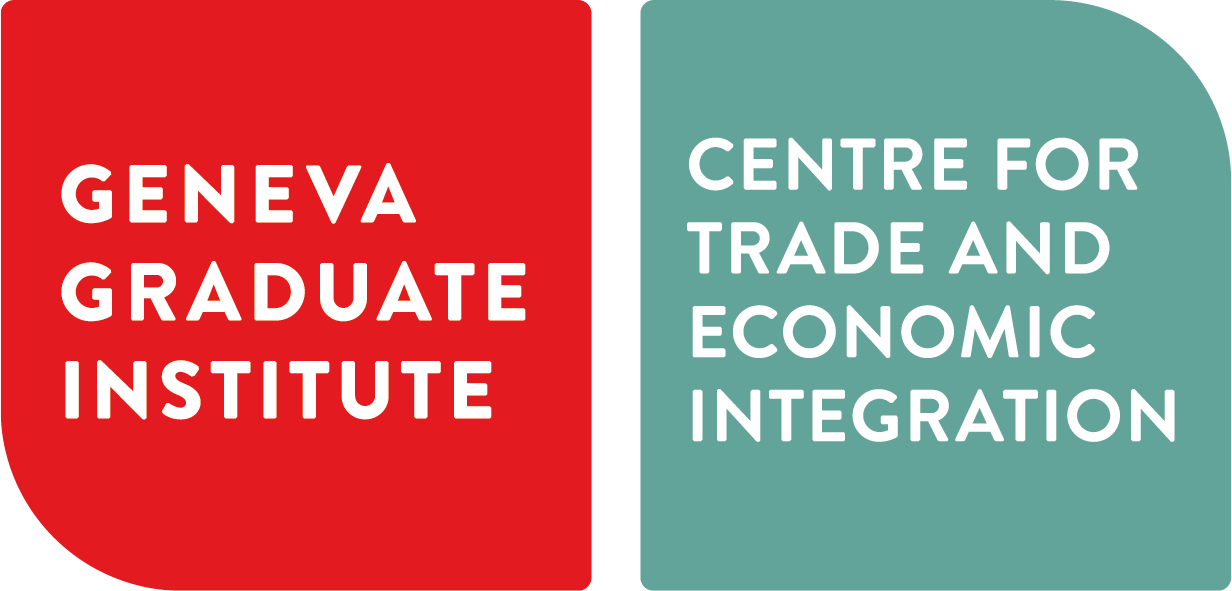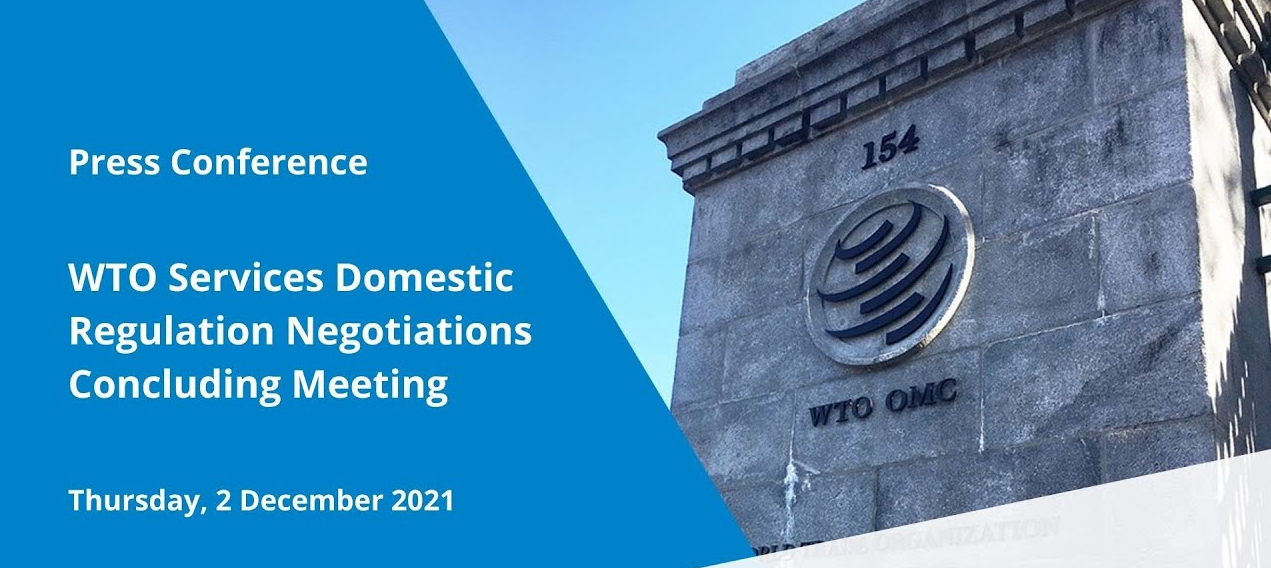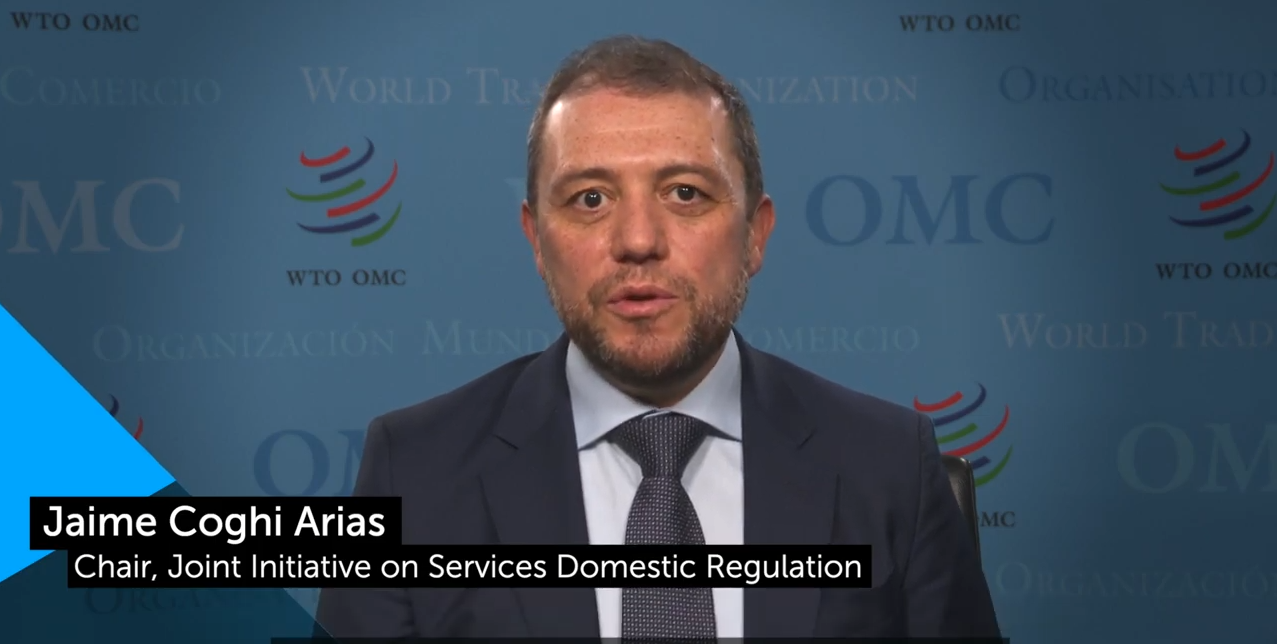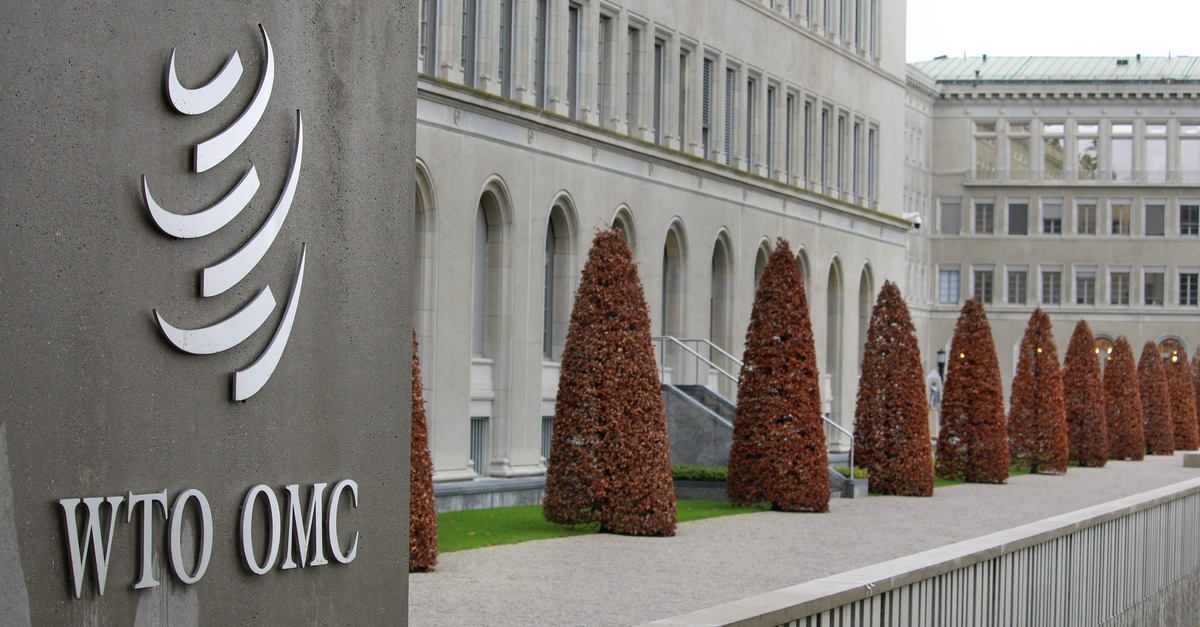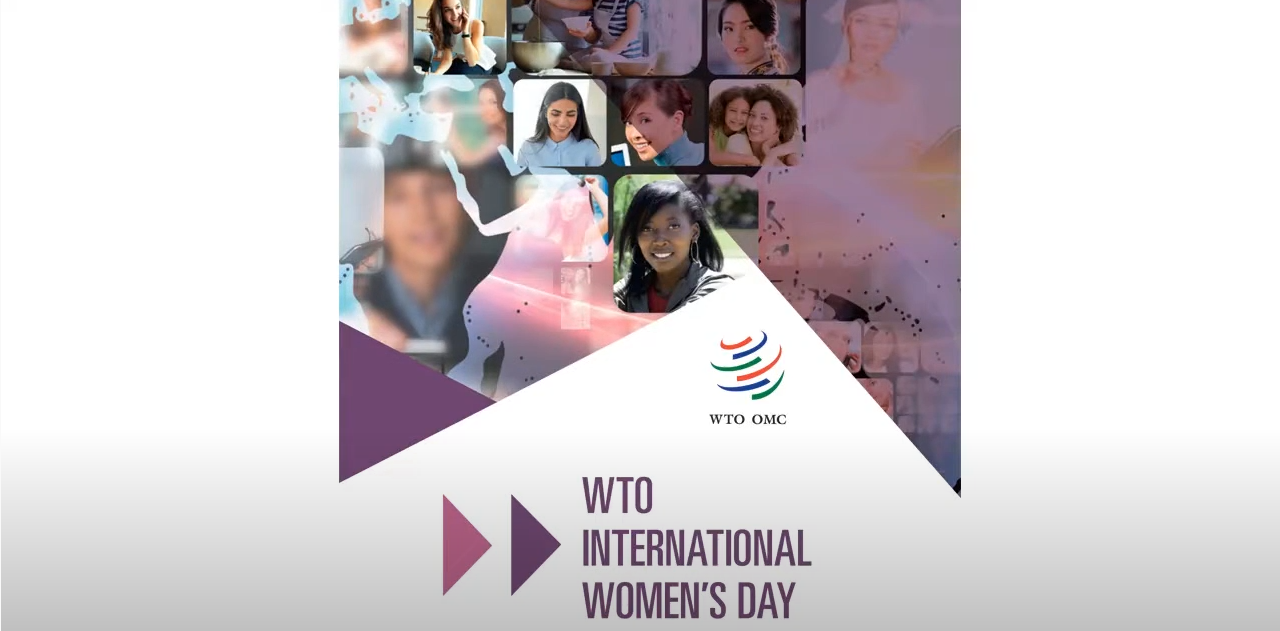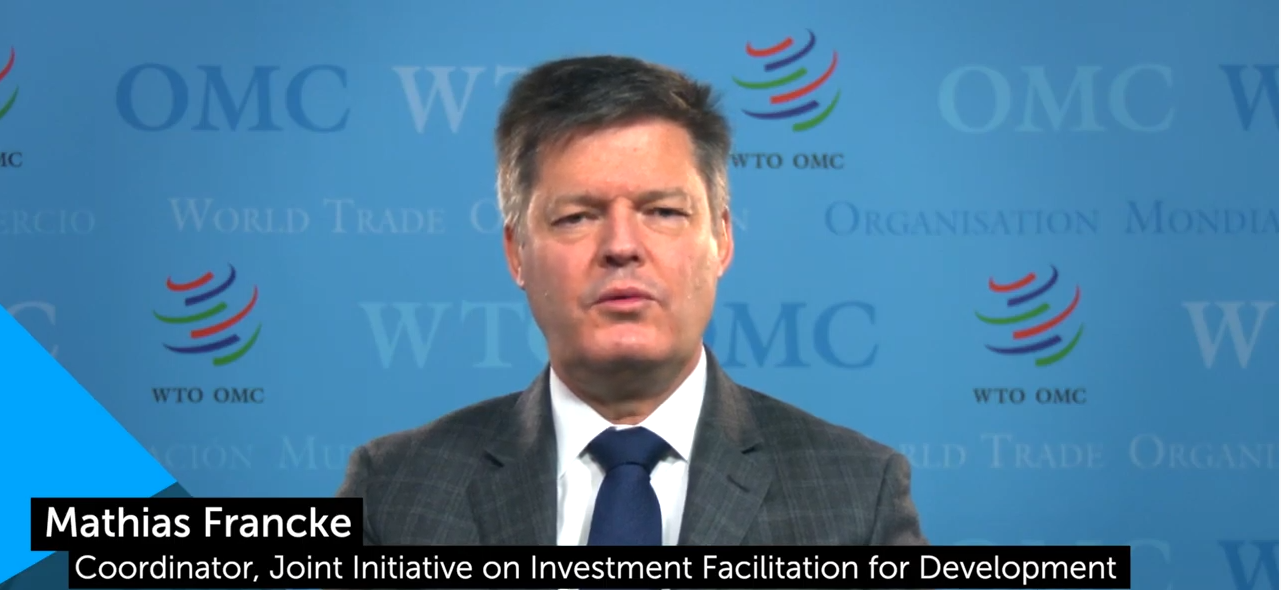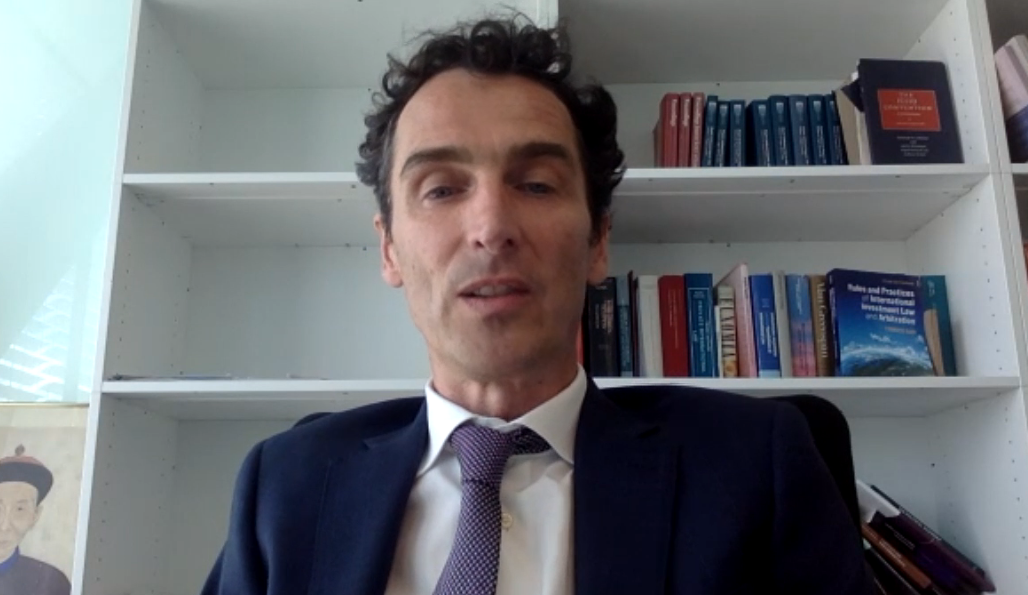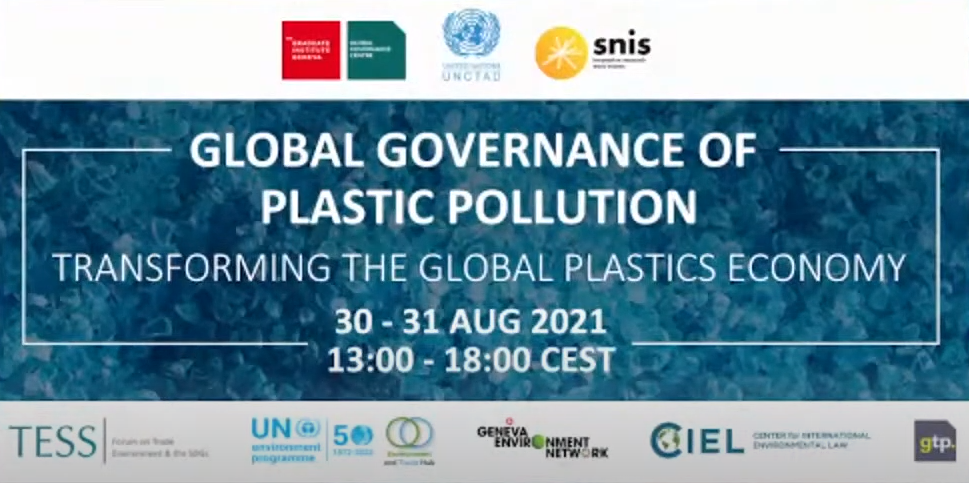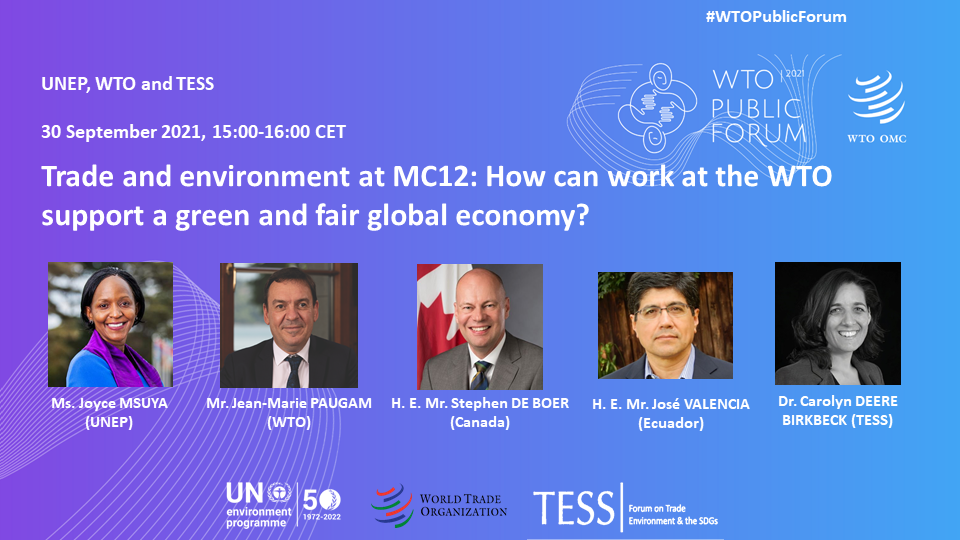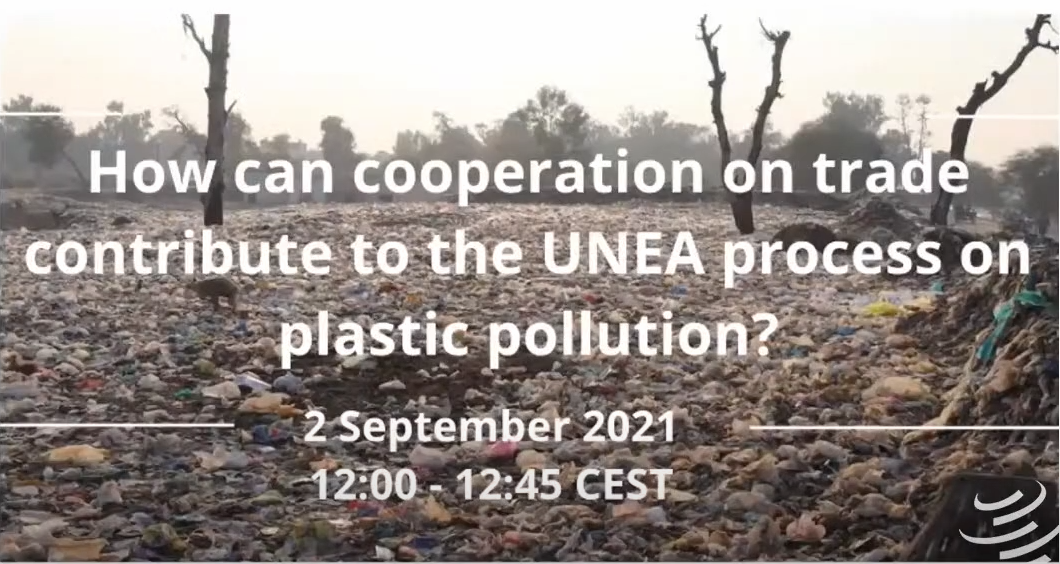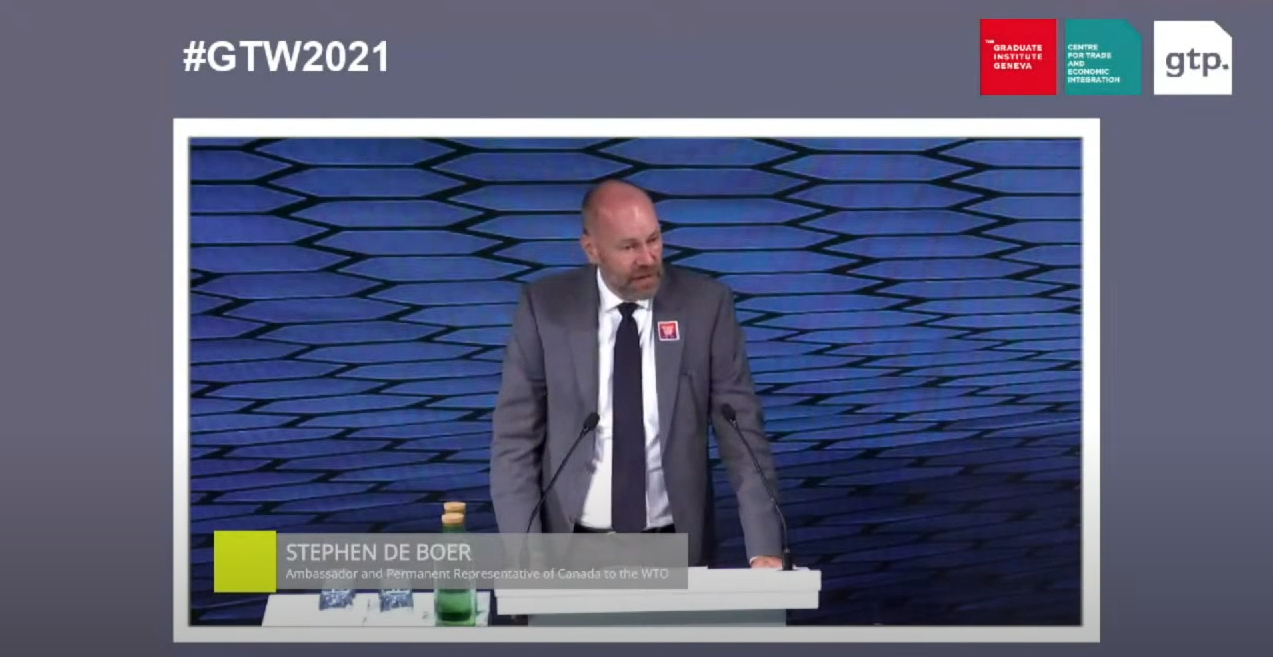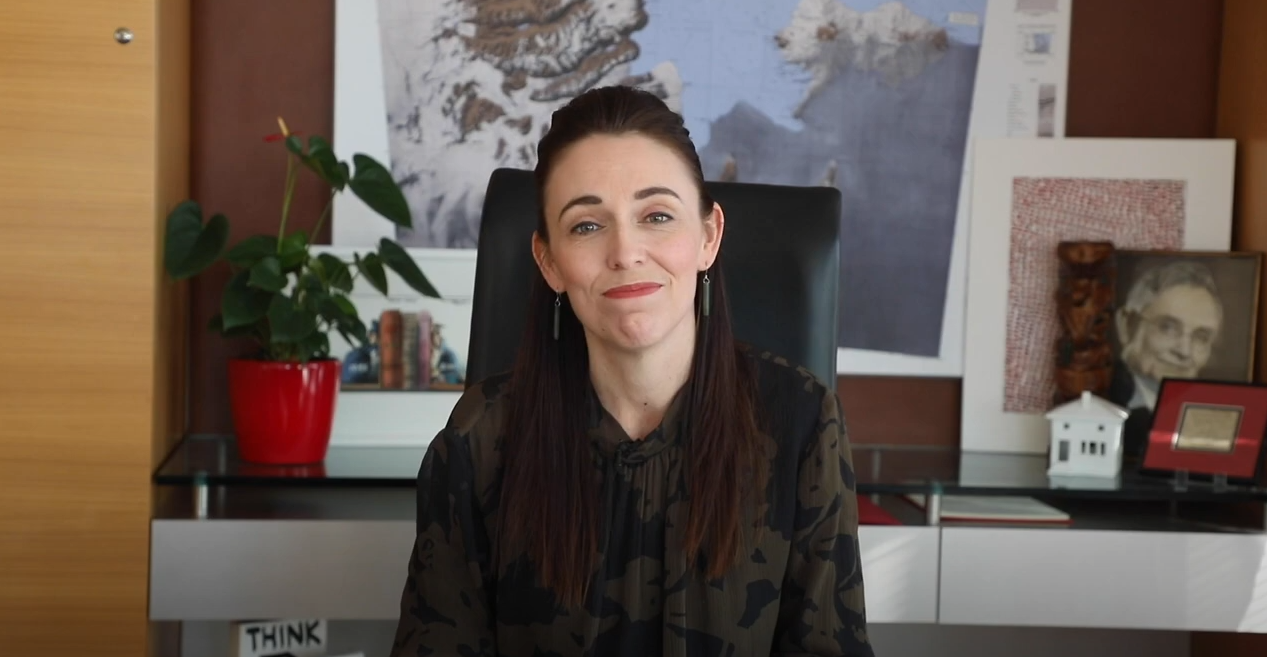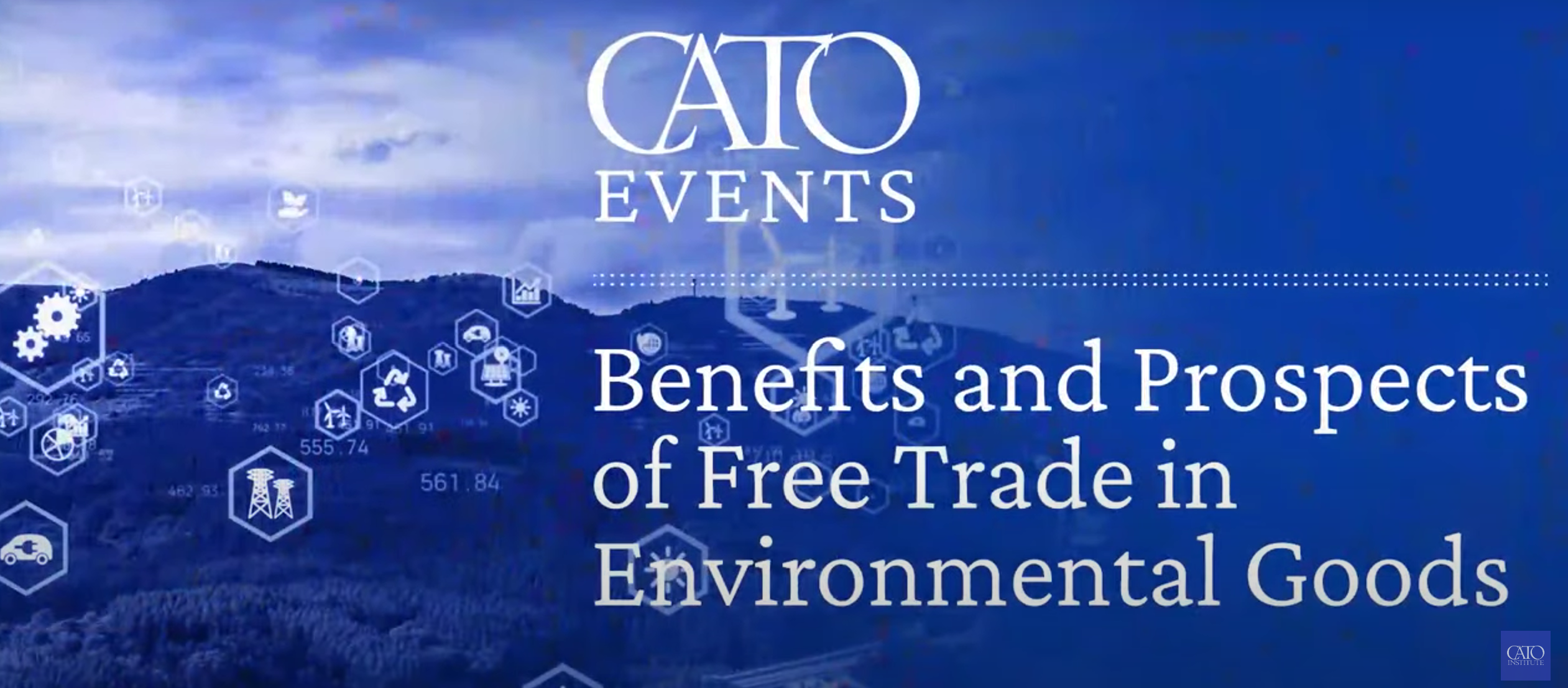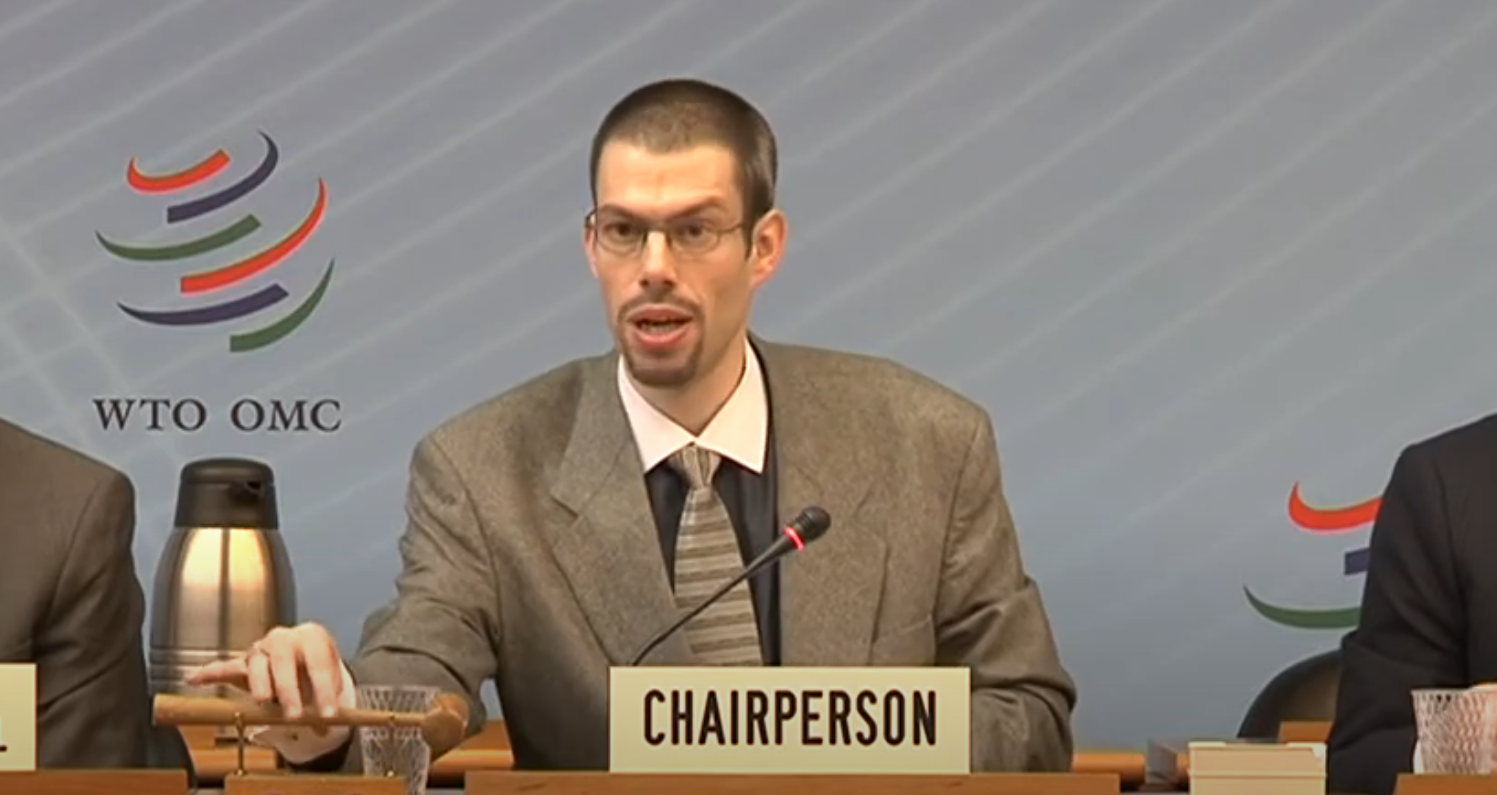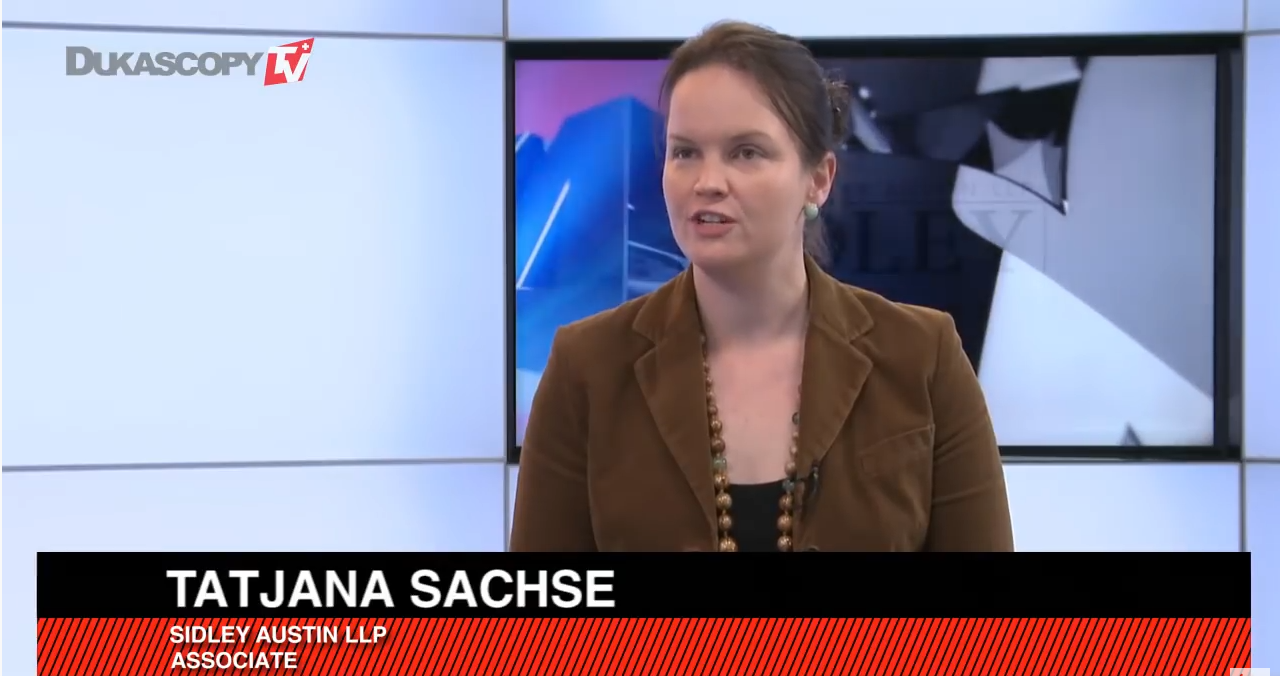Selling services like engineering or legal advice across borders requires receiving a range of permissions and authorisations. To do so, businesses may need to comply with licensing, qualifications and technical standard requirements. If navigating the bureaucracy to get these is excessively onerous, unpredictable, or expensive it can keep legitimate competition out of the market. The WTO Joint Initiative on Services Domestic Regulation sets out common rules requiring best practice regulatory approaches that allow domestic policy objectives to be realised - without adverse consequences on services trade. The full text of the specific rules agreed can be found here and we provide provision by provision explanations here.
This website – created by the Geneva Trade Platform with the generous support of the Konrad Adenauer Foundation – provides accessible, up to date, and politically neutral information on plurilateral initiatives of all types at the World Trade Organization (WTO), as well as the WTO multi-party interim appeal arrangement (MPIA).
WTO Plurilateral initiatives are discussions at the WTO in which only a subset of Members are participating. They can aim to create new rules, secure mutual liberalization of tariffs, create a new process or launch a conversation. They cover areas such as electronic commerce, investment facilitation, and the intersection of trade and gender. Such initiatives are not always without controversy, and in some cases not all WTO Members agree they are within the spirit or letter of the WTO rules.
We take no position on this complex issue, and only seek to provide balanced and comprehensive information on the initiatives and their progress.
There’s a lot of great content for you to explore already, but this site relies on crowdsourcing and submissions to remain current and comprehensive. Please use the forms from the ‘Contact Us’ dropdown to submit any news or analysis pieces you think may be relevant or helpful.
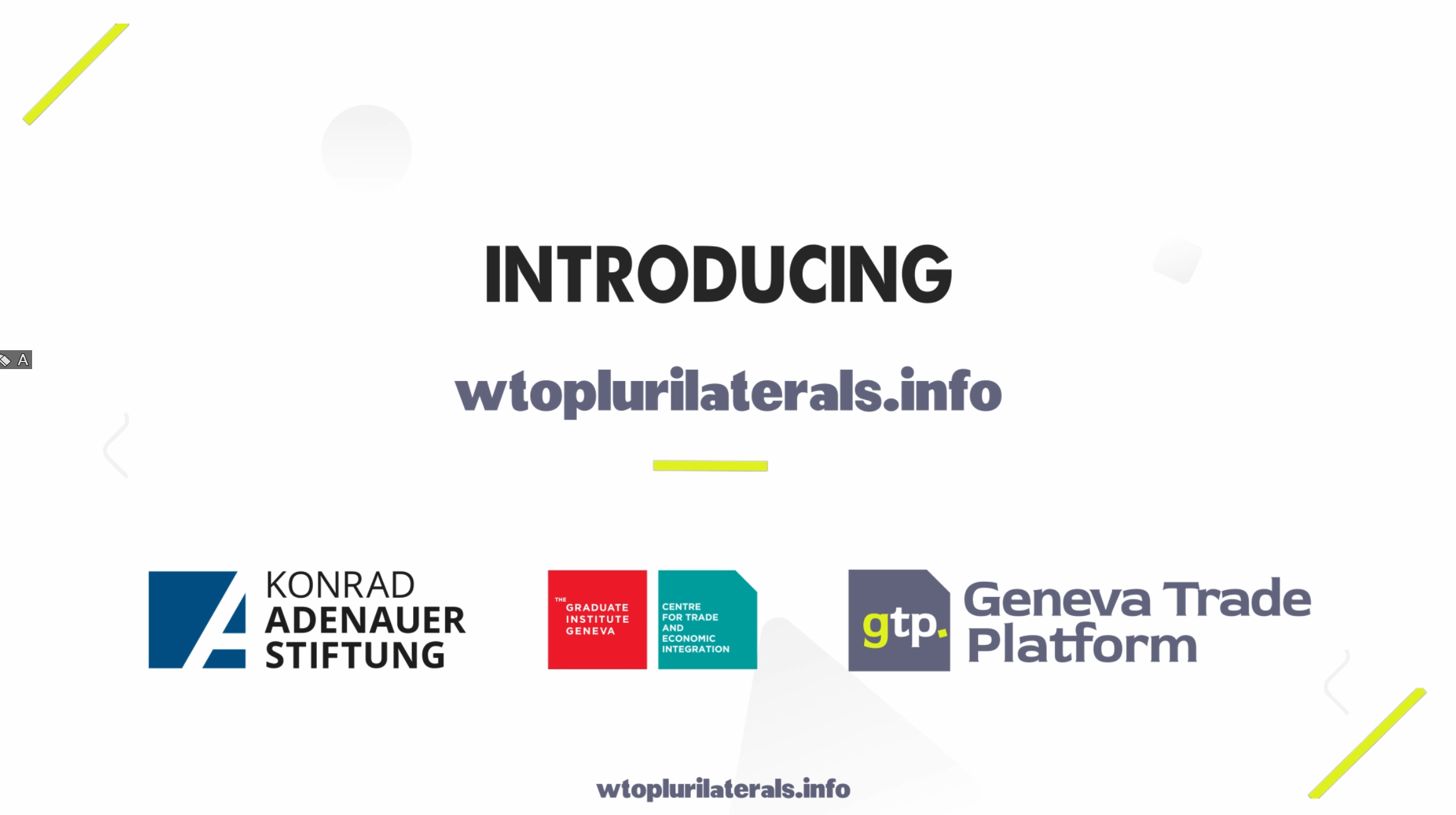
- WTO - MPIA Arbitrators issue Award in DS 611 (EU vs China)
- EU - UK joins the MPIA
- WTO - Malaysia joins the MPIA
- WTO - Paraguay joins the MPIA
- Borderlex: EU appeals China WTO panel to MPIA
- WTO - China EU Dispute DS611 Moves to MPIA Arbitration
- WTO - E-Commerce Plurilateral Co-Convenors Announce Successful Stabilisation of the Text
- IISD - WTO Joint Initiative on E-Commerce State of Play Report
- WTO - New commitments for domestic regulation of services move step closer to entry into force
- WTO - Georgia, Timor-Leste and United Arab Emirates join initiative on services domestic regulation
- WTO - Participants in talks on services domestic regulation share implementation experiences
The WTO E-commerce Joint Statement Initiative (JSI) aims to agree common rules in areas including: enabling electronic commerce; promoting openness and trust in e-commerce; cross-cutting issues; telecommunications and market access for e-commerce firms. The JSI was launched at the WTO Ministerial Conference in 2017. In 2019 under this initiative, e-commerce negotiations began and in 2020 a consolidated negotiating text formed the basis of the ongoing negotiations amongst 86 WTO members. The co-convenors announced that the text was stabilized on 26 July 2024. Australia, Japan and Singapore are currently co-convening this plurilateral process.
- WTO - E-Commerce Plurilateral Co-Convenors Announce Successful Stabilisation of the Text
- IISD - WTO Joint Initiative on E-Commerce State of Play Report
- Inside US Trade - U.S. to end support for WTO e-commerce proposals
Recommendation on promoting MSMEs' inclusion in regulatory development in the area of trade (Annex 4);In early 2017, a group of WTO Members calling themselves the “Friends of Micro, Small and Medium-Sized Enterprises (MSMEs),” led by Argentina, Brazil and Chile, successfully launched an informal dialogue on how the WTO could support the integration of MSMEs into international trade. At the 11th WTO Ministerial Conference (MC11) in December 2017, Canada and 86 other WTO Members issued a Joint Ministerial Statement establishing an informal work program on MSMEs, which is still ongoing. Sessions of the Informal Working Group are open to any WTO member that wishes to attend or participate. The group aims to address the burdensome barriers faced by MSMEs trying to engage in international trade - and widen the discussion on these issues at a multilateral level.
- WTO - MSMEs Group discusses digitalization, access to finance for women-owned small businesses
- WTO - Working Group announces Small Business Champions, Trade4MSMEs update and new Trade Game
- WTO - Coordinator's summary of second open-ended meeting of MSME's Informal Group
At the 11th WTO Ministerial Conference in December 2017, trade and gender was raised formally on the WTO agenda with 118 WTO members endorsing the Buenos Aires Declaration on Trade and Women’s Economic Empowerment. The Declaration aimed to increase women’s participation in international trade, cultivate their economic empowerment and to remove the barriers facing them in the process. Thereafter, in September 2020 an Informal Working Group on Trade and Gender was initiated to bolster efforts towards these goals to improve women’s participation in global trade. It was agreed that there was an important need for the WTO to address issues related to the economic empowerment of women, which has become more pronounced as a result of the disproportionate impact of the COVID 19 pandemic on women. The Working Group aims to minimise these impacts and support women in moving forward with targeted actions. It aims to share best practice on removing barriers to women's participation in world trade, to exchange views on how to apply a “gender lens” to the work of the WTO, to review gender-related reports produced by the WTO Secretariat, and to discuss how women may benefit from the Aid for Trade initiative. The initiative is chaired by Cabo Verde, the United Kingdom and El Salvador.
- WTO - Costa Rica's joins Inclusive Trade Action Group and the Global Trade and Gender Arrangement
- WTO - Trade and Gender Informal Working Group co-chairs launch work plan for 2023-24
- WTO - Ecuador joins Inclusive Trade Action Group and the Global Trade and Gender Arrangement
The Joint Initiative on Investment Facilitation for Development was launched by 70 members at the 11th WTO Ministerial Conference (MC11) in December 2017 and was driven by a need to address the trade barriers slowing down and restricting investment processes between countries. In November 2019, 98 WTO members issued a subsequent Joint Statement on Investment Facilitation for Development. Discussions in the Joint Initiative on Investment Facilitation for Development aim to facilitate foreign direct investment that would: improve the transparency and predictability of investment measures; streamline and speed up administrative procedures and requirements; and enhance international cooperation, information sharing, the exchange of best practices, and relations with relevant stakeholders, including dispute prevention. Formal negotiations began in September 2020 and were concluded successfully in July 2023. A core objective of the framework is to facilitate greater participation by developing and least-developed WTO Members in global investment flows. The negotiations will not address market access, investment protection or Investor-State Dispute Settlement.
- IISD - The Investment Facilitation for Development Agreement: A reader's guide
- WTO - Investment facilitation negotiators announce deal on Agreement’s text
- WTO - Investment facilitation talks aim at concluding draft text negotiations in early July
In order to maintain the efficacy of the rules-based trading system and for members to continue to have access to an independent appeal process for dispute settlement, 16 WTO members set up a separate appeal system for trade disputes in March 2020. Known as the Multi-Party Interim Appeal Arbitration Arrangement (MPIA), it is an alternative system for resolving WTO disputes that are appealed by a Member in the absence of a functioning and staffed WTO Appellate Body. WTO members can resort to the use of the MPIA under Article 25 of the WTO Dispute Settlement Understanding, as an alternative mechanism for dispute settlement. The MPIA embodies the WTO appellate review rules and in a dispute between members, it will supersede the previous appeal processes and also apply to future disputes between members. Any member can join the MPIA by notifying the Dispute Settlement Body and a range of members have done so. The MPIA is likely to remain in place for as long as the WTO Appellate Body is not functioning, and for disputes among those members that are party to it, the MPIA serves as a temporary solution to the WTO Appellate Body gridlock.
- WTO - MPIA Arbitrators issue Award in DS 611 (EU vs China)
- EU - UK joins the MPIA
- WTO - Malaysia joins the MPIA
The Dialogue on Plastics Pollution is described by its proponents as being borne out of the recognition of the need for coordinated action to address the rising environmental, health and economic cost of plastics pollution and the importance of the trade dimension as a solution. Possible subjects for discussion include improving transparency, monitoring trade trends, promoting best practices, strengthening policy coherence, identifying the scope for collective approaches, assessing capacity and technical assistance needs, and cooperating with other international processes and efforts. The co-coordinators of the initiative are Australia, Barbados, China, Ecuador, Fiji and Morocco.
- WTO - Plastics Pollution Dialogue unveils elements of potential outcome for MC13
- WTO - Plastics Dialogue participants brainstorm on MC13 outcomes, welcome US co-sponsorship
- WTO - Plastics Dialogue participants prepare ground for achieving outcomes at MC13
The Trade and Environmental Sustainability Structured Discussions (TESSD) are intended to complement the work of the Committee on Trade and Environment and other relevant WTO bodies and to support the objectives of the Marrakesh Agreement Establishing the WTO, which envisages a global trading system that protects and preserves the environment in accordance with sustainable development. The co-coordinators of this initiative are Canada and Costa Rica.
- WTO - Members discuss possible TESSD outcomes for delivery at MC13
- Members advance work on environmental issues in specific sectors after stocktaking event
- WTO - Members take stock of sustainability discussions, signal priorities for concrete action
At the 2017 Ministerial Conference, New Zealand and eleven other WTO Members¹ delivered a statement at the encouraging the rationalization and phase out of inefficient fossil fuel subsidies that encourage wasteful consumption. The statement recognized that reform needs to take into account the specific needs and conditions of developing countries and minimize the possible adverse impacts on their development. The statement also recognized the importance of the WTO as a forum to advance discussions to achieve ambitious and effective disciplines on fossil fuel subsidies, including through enhanced transparency and reporting to enable the evaluation of the trade and resource effects of fossil fuel subsidies programmes. Since then, New Zealand and other Members have worked to build momentum and consensus for this initiative and are working toward a renewed version of this statement for MC12. The goal is to increase dialogue, information sharing and exchanges at the World Trade Organization on this issue, which it is hoped will eventually evolve into momentum toward the phase out of inefficient fossil fuel subsidies that encourage wasteful consumption in a manner that takes fully into account the specific needs and conditions of developing countries and minimizes the possible adverse impacts on their development in a manner that protects the poor and the affected communities;
¹ Chile; Costa Rica; Iceland; Liechtenstein; Mexico; the Republic of Moldova; New Zealand; Norway; Samoa; Switzerland; the Separate Customs Territory of Taiwan, Penghu, Kinmen and Matsu; and Uruguay.
The Environmental Goods Agreement (EGA) seeks to reduce tariffs on goods considered to have benefits for sustainable production and consumption. The WTO Members involved attempted to agree among themselves a list of such goods and a schedule of tariff reductions on them. These tariff reductions would then be available to all WTO Members on a Most Favored Nation basis.
The WTO rules, which otherwise limit discrimination between goods and services, completely exempt government procurement. Any purchases by a government, at any level, is exempt from the normal WTO rules. Through the Agreement on Government Procurement, the WTO Members who signed up to it agreed to extend to one another's firms the ability to bid openly and compete fairly on a range of government contracts and tenders.
The Information Technology Agreement (ITA) eliminates the tariffs on a large range of IT and IT related products. Only those WTO members which are party to the agreement are obliged to undertake these tariff reductions, but all members benefit from them because the parties offer these reductions on a most favoured nation basis to all everyone, and not just one another. Since the original (ITA I) was concluded in 1996, a smaller sub-group of members agreed in 2015 to reduce tariffs on an even larger list of IT products in what is known as ITA II.
We appreciate any and all feedback or suggestions on the website. To get in touch, please use the form below. If you have a piece you'd like us to link to that relates to the MPIA or any of the Initiatives, please use the submissions forms from the drop down menu under "Contact Us".

